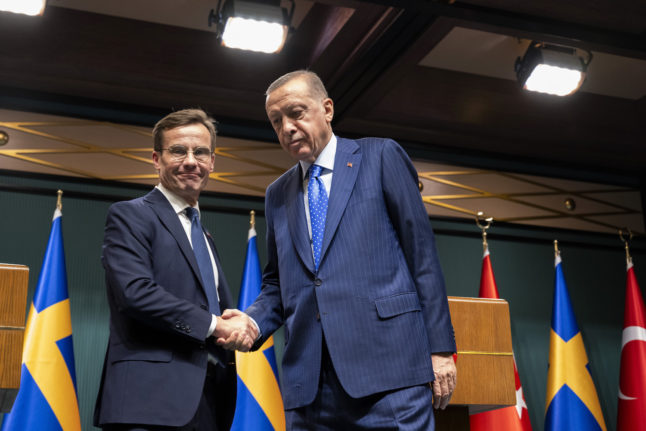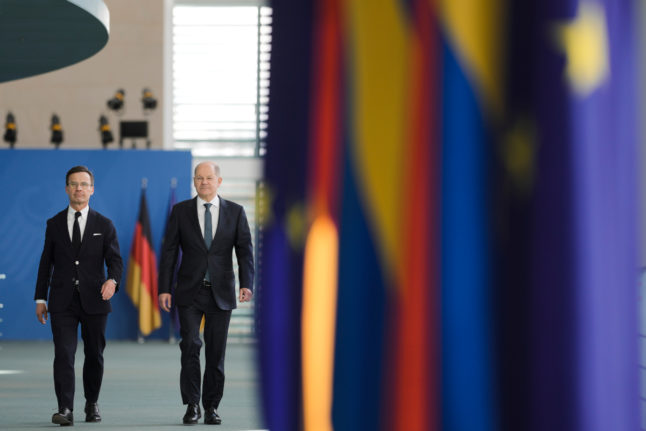“What we are working to achieve is a positive decision at the summit where Turkey makes clear it is ready to ratify,” Nato Secretary-General Jens Stoltenberg said after talks at Nato headquarters with foreign ministers from the two countries.
The meeting between Kristersson and Erdogan will be convened by Stoltenberg, he announced in a press conference after the foreign ministers of Sweden, Turkey and Finland met in Brussels on Thursday.
“We’re all in agreement that there has been good progress,” he added, repeating his stance that Sweden is ready to join the alliance. “All further delays will only benefit the PKK and Putin.”
- What still needs to happen before Sweden can join Nato?
- Sweden, Nato and the Quran: How did it all come to this?
The meeting on Monday will take place a day before Nato’s summit in Vilnius begins on July 11th. Sweden’s government has said previously that it is hopeful that Sweden will be able to join Nato at the summit, but it looks like this will not be possible.
“Naturally, a ratification in the Turkish parliament cannot take place until Monday,” Stoltenberg said, adding that having Sweden as a Nato member would strengthen the alliance.
“In April, we welcomed Finland into the Nato family. That has been a gamechanger for our security. Now, it’s time to welcome Sweden.”
Sweden has fulfilled its commitments under the trilateral memorandum which the three countries agreed on last summer, Stoltenberg believes, adding that he expects “continued progress” over the weekend.
All Nato countries bar Turkey and Hungary have approved Sweden’s Nato application.



 Please whitelist us to continue reading.
Please whitelist us to continue reading.
Member comments